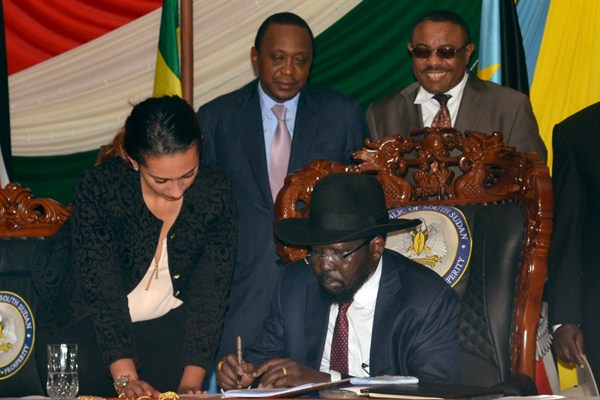How much clout does the U.S. wield over African leaders? Over the past month, the Obama administration has turned up the heat on South Sudan’s president, Salva Kiir, pressuring him to commit to a deal to end his country’s 20-month-old civil war.
Kiir did all he could to avoid signing the agreement, which involves a power-sharing arrangement with rebel leader and former Vice President Riek Machar. He backed out of a ceremony to sign it in the middle of last month and only gave in last week after the U.S. threatened him with United Nations sanctions. Last week, the Security Council released a statement warning that it remains ready to impose an arms embargo and further penalties if the deal fails.
Yet the chances of failure remain high. Fighting has restarted today. Some rebel commanders have said that they will not respect the agreement. Kiir continues to insist that the bargain is flawed. American diplomats, who initially celebrated South Sudan’s independence in 2011, are profoundly disillusioned with the fledgling country’s elites. As one anonymous U.S. official told reporters in July, the civil war that began in December 2013 is “a classic case of venal leaders squandering a huge opportunity.”

